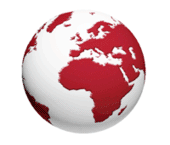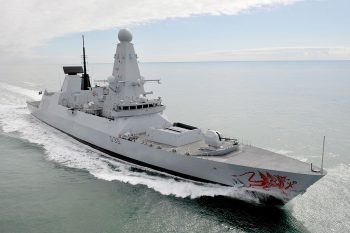ECFR: Could Germany make a Geopolitical turn on financial policy?
ECFR: Could Germany make a Geopolitical turn on financial policy?
Syndicated by GEO´ Newsdesk Team
European Press Centre Malaga
Jonathan Hackenbroich, Research Felow at the European Council on Foreign Relations (ECFR) Reports from Berlin
A Geopolitical paradox has lain at the heart of Germany’s policy on the euro, and its own fiscal policy, for many years – and Berlin is now waking up to this tension.
“Internationalising the euro is no longer the taboo it once was in Germany. Quietly, but indisputably, views in Berlin are starting to shift.”
Take fiscal policy first. Contrary to the assumptions of many commentators, especially at the height of the euro crisis, Germany’s approach to European financial and fiscal policy always had a strategic rationale behind it: the country’s hard line in the early years of this decade sought to make Europe
economically competitive in the twenty-first century by forcing consolidation of out-of-control spending, and enabling quality growth rather than growth inflated by central bank money. Berlin’s goal was to ensure the euro would not become a “transfer union” and thereby cause political division in Europe between net contributors and net beneficiaries. ‘Fiscal prudence’ (or ‘austerity’,
depending on whether you like it or not) also helped Angela Merkel’s governments domestically by allowing them to display their toughness on countries such as Greece.
But today, it is clear that Berlin’s strategy did not succeed. While the policies managed to rein in spending, they increased intra-eurozone divergence and divided the EU, instead of making Europe stronger and more competitive as a whole, as had been intended.
Importantly, the German approach was purely economic and geopolitics played no major role in Germany’s thinking during this period. This omission has become increasingly clear in recent years, as the consequences of this approach have come to clearly overlap with important international trends. It did so in ways not helpful for those who wish to see a stronger and more sovereign Europe: the ‘fiscal prudence first’ approach stymied European investments and forced the
sale of state-owned assets for economic consolidation, inviting in non-European investments as replacements, especially from China.
Indeed, as Europe struggled with itself, the world around it changed greatly. Today, China is strategically buying up European companies like Germany’s Kuka robotics company; and it has launched an industrial strategy for technological and geo-economic supremacy in the twenty-first century. But the US has also labelled the European Union a competitor and is using its economic power to bully European companies. The world is no longer one of protocol and multilateralism but is instead caught up in bipolar geo-economic competition between great powers.
In this new era, many in Berlin are now starting to realise that they need to take geopolitics much more into account when it comes to their long-standing financial policy preferences.
The China case is especially instructive because in Beijing’s geopolitical race with Washington some of its greatest assets are economic dependencies, which grew larger in Europe this decade: as fiscal consolidation increased, many of these countries vied for outside money. Across Europe, and especially in southern EU member states, China now owns majority shares in ports, electricity grids, transport and health systems, and key companies like Pirelli.
The geopolitical consequences have become ever more apparent, from cases of Hungary, Greece, and Slovenia blocking EU statements criticising China for human rights violations or its South China Sea aggression, to a group of 16 (now 17) eastern European countries forming to foster closer economic ties with China outside EU structures. The Chinese are now in possession of valuable strategic assets along Europe’s periphery that they can use for political purposes.
About the ECFR
The European Council on Foreign Relations (ECFR) is an award-winning international think-tank that aims to conduct cutting-edge independent research on European foreign and security policy and to provide a safe meeting space for decision-makers, activists and influencers to share ideas. We build coalitions for change at the European level and promote informed debate about Europe’s role in the world.
In 2007, ECFR’s founders set about creating a pan-European institution that could combine establishment credibility with intellectual insurgency. Today, ECFR remains uniquely placed to continue providing a pan-European perspective on some of the biggest strategic challenges and choices Europeans need to confront, with a network of offices in seven European capitals, over 60 staff from more than 25 different countries and a team of associated researchers in the EU 28 member states.











